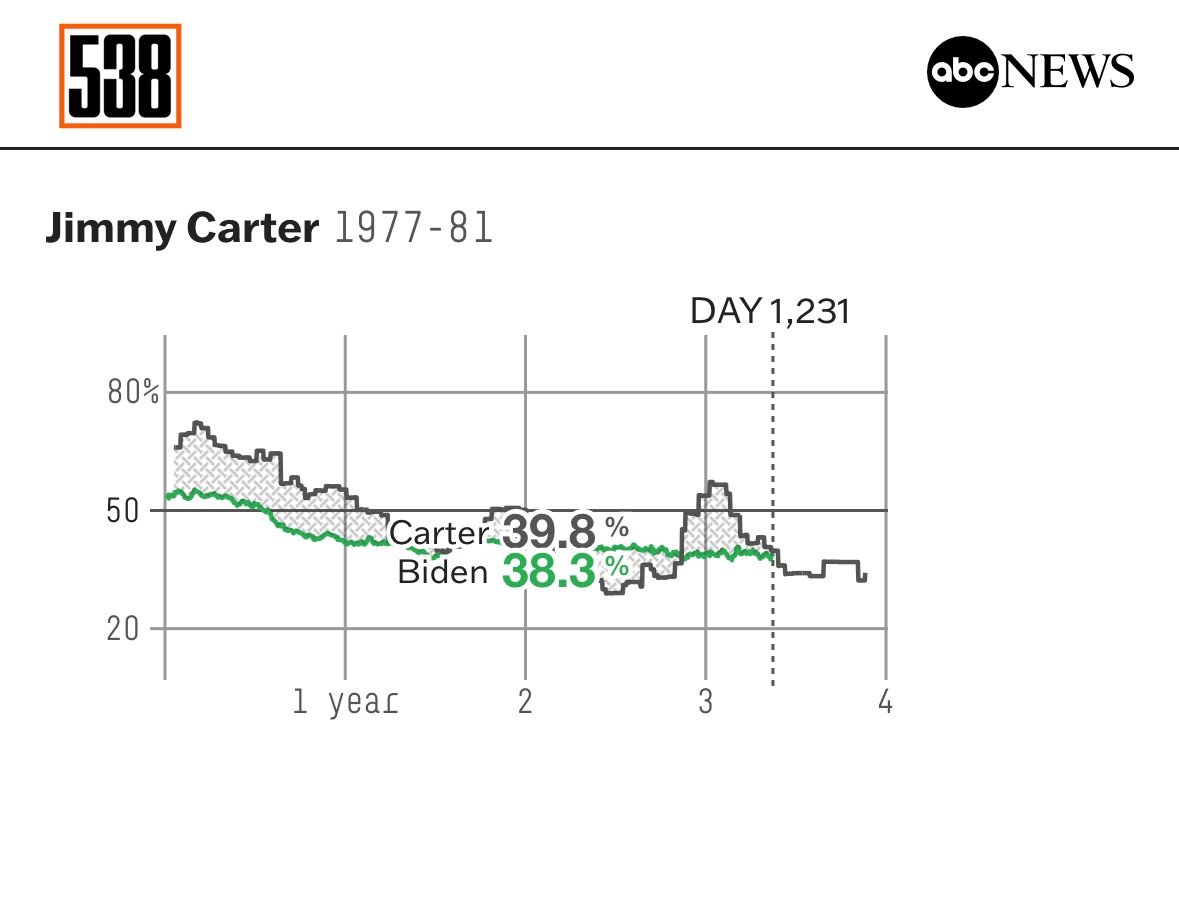At day 1231 of his presidency, President Joe Biden’s approval rating has plummeted to 38.3 percent, marking the lowest point for any modern president. This approval rating is even lower than the “lame duck” Jimmy Carter, and falls beneath the ratings of Barack Obama, Donald Trump, Ronald Reagan, and George H.W. Bush at similar points in their presidencies.
Biden’s declining approval rating comes amidst various national challenges and controversies. Critics point to economic struggles, foreign policy issues, and domestic unrest as key factors contributing to the public’s dissatisfaction. The president’s handling of these issues has drawn sharp criticism from both sides of the political aisle, further eroding his support base.
Historically, presidents have faced fluctuating approval ratings due to the dynamic nature of political and economic conditions. However, Biden’s current rating is particularly significant as it reflects a broader sense of disenchantment among the electorate. This low approval could have substantial implications for the upcoming elections, potentially weakening the Democratic Party’s position.
Comparatively, even during periods of significant criticism, former Presidents Obama, Trump, Reagan, and Bush maintained higher approval ratings at similar stages in their terms. For instance, during his presidency, Ronald Reagan managed to maintain a stronger approval rating despite facing economic challenges and political opposition. Similarly, despite significant controversies, Trump and Obama managed to keep their ratings above the current level seen by Biden.
Biden’s approval rating is not just a number; it symbolizes the growing discontent among American voters. As his administration continues to address ongoing issues, the low rating serves as a critical indicator of public sentiment and the challenges ahead for the current administration.


